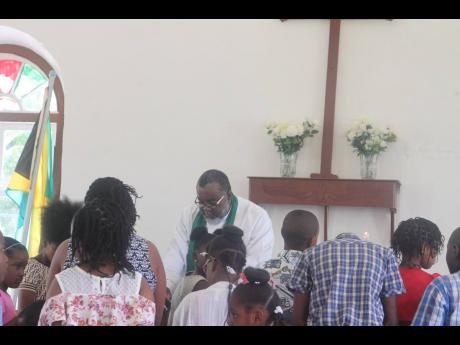Forgive thy neighbours, as He has forgiven thee
Chantilly, Manchester:
Someone kills your pet and you forgive them. But if another person kills your loved one, what should you do?
The nature of the hurt inflicted on you by another may be so heart-wrenching that the word forgiveness infuriates the very fibre of your being. But according to Reverend Shaun Nisbeth of the St Stephen’s Anglican Church, the act of showing grace to others as God has shown it to us is necessary.
“It is a difficult thing to do because we find forgiveness difficult, both to receive and to give. However, it is an urgent word because receiving and giving forgiveness is the central theme of the Christian life.”
In a sermon presented to his congregation recently, Nisbeth said: “Firstly, receive God’s forgiveness. We can pass it on only through that which we have received, having experienced forgiveness at the hand of God. We are then called to make it possible for others to experience it. Thus, the circle of Christ’s love expands to [find] one more lost sheep and another and another, and before you know it, you have a whole community coming together.
“Jesus is not suggesting that we regard the offences as unimportant. He is calling us to take sin seriously, and then to take forgiveness equally seriously…
“Some persons don’t like to be corrected because of how painful it is. It brings to mind, especially, how we have left those we love. On the one hand, those who receive these words may ask: ‘How many times must I be slighted before I say enough is enough? How long, oh Lord, can my reservoir of grace be exhausted before I say enough is enough?’”
He said that these reactions are natural for us humans, but the failure to forgive will not heal the wound, but cause it to fester.
“We know too well both the small and large ways that others can tread upon us; can take advantage of our generosity. Our unwillingness to forgive will ricochet on us. Forgiveness is not optional because God’s forgiveness knows no end, and so also our relationships should be governed by grace that knows no bounds.
“It is a very hard task to forgive those that wrong you, but as people of God, we have to learn to forgive. Children are very good at this.”
He said that too many of us want to keep a record of the wrongdoings to justify why we cannot forgive, but that is not the way.
“The deeper the hurt that we have suffered, the longer it will take for us to reach to the place of letting go. God’s commandments say that we must love our enemies. This kind of love keeps no record of drama.”
He said that people must learn to ask the ultimate Forgiver how to forgive.
“We of ourselves cannot do it. We must ask God for help. Over time, you will to do what now seems to be the impossible. This requires a determined choice to look past the issues and to look on the heart of another through the lens of [sincerity],” he said.

